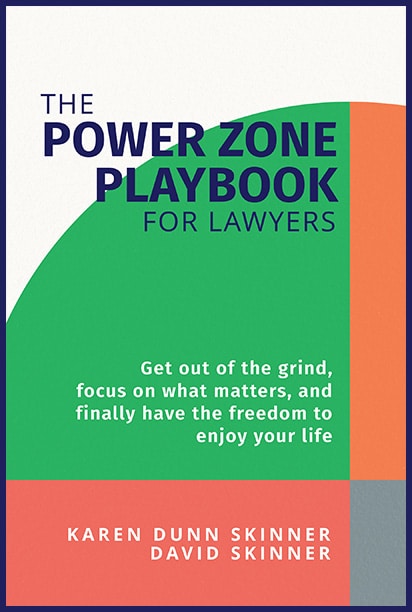Flat fees only work when you manage the work well. That’s where these legal project management tips come in — to ensure flat fee profitability.
Table of contents
Legal Project Management Helps Flat Fees Succeed
We’ve been reading a lot lately about AI’s impact on hourly fees. When you sell time, being able to get something in 10 minutes that used to take you three hours isn’t really a benefit, is it? However, when you sell a transformation or a result — when your services have a value independent of time — it doesn’t matter how long you take. Clients want the transformation you deliver. They value the result (a completed will, the sale of their business, or the protection of their idea), and you can deliver that result as quickly and effectively as you can, without being penalized for your efficiency.
This is the thinking that underlies flat fee and value billing, now made even more urgent by the pressures of AI. But when we asked lawyers on a recent webinar what was holding them back from shifting to flat fees, the overwhelming answer was they were afraid they’d lose money.
Flat fees only work when you manage the work well. That’s where legal project management, or LPM, comes in. LPM isn’t just for large firms with project management teams and deep-pocket clients. It’s a powerful tool for any attorney who wants to implement flat fees, increase efficiency, deliver a better client experience and improve profitability.
What Is Legal Project Management?
At its simplest, LPM is the practice of managing legal matters like projects. That means:
- Defining and agreeing to a clear scope of work upfront.
- Setting clear objectives and timelines.
- Allocating resources effectively.
- Tracking budgets across the life of the matter.
- Communicating regularly with clients and team members.
It brings clarity, consistency and control to how legal services are delivered. You can learn more about it here.
Before you price, LPM helps you define what’s included and what’s not. During the work, LPM keeps the matter on track, within scope and budget. After the matter closes, LPM enables review and improvement for future pricing.
You don’t need to be a certified legal project manager to apply LPM strategies in your practice, but you do need to shift your mindset. With hourly billing, time is money. With flat fees, efficiency is money. LPM provides the structure you need to scope, price and deliver flat fee matters efficiently and profitably. Without it, you risk underestimating the work, overdelivering for free, or damaging client relationships when expectations aren’t aligned.
Three Legal Project Management Tips for Flat Fee Success
If your small firm is exploring or already offering flat fee pricing, here are three LPM-based tips to ensure you stay profitable and keep your clients happy.
1. Scope Every Matter
Tip: Break your matters into distinct phases and deliverables. Clearly define what’s included and what’s excluded. Start with your typical matter and consider the tasks and deliverables that are usually required. Think, too, of the typical variations and contingencies you often run into. Decide what you want to include in your fee and don’t be afraid to price the variations separately, either as a menu of additional flat fees or hourly.
Why it works: Most flat fee failures happen because the scope is too vague, so the work expands beyond what’s profitable. To avoid scope creep, ensure you and the client know exactly what you have agreed. A well-scoped matter might include: “This flat fee includes two rounds of revisions to the shareholder agreement. Additional revisions will be billed separately at [$X per round of revisions or $X per hour].”
Benefit: Scoping is essential to the profitability of your flat fees. It clarifies expectations, prevents miscommunication and protects your margin.
2. Define Assumptions Upfront
Tip: Document any assumptions that underpin your pricing and share them with the client.
Why it works: Flat fees often rely on certain assumptions (e.g., the client will provide documents promptly or opposing counsel will cooperate). If those assumptions fail, your costs go up. This is the source of the fear lawyers expressed to us about losing money.
Benefit: LPM encourages upfront communication and proactive risk management. Stating your assumptions from the beginning allows you to cost your matter properly. Even more importantly, it helps you reset or renegotiate when things change. For example, you might state: “This fee assumes that discovery will not exceed 2,000 pages and that no third-party subpoenas will be required.”
3. Actively Manage the Work
Tip: Use task lists, timelines and team check-ins to keep matters moving efficiently. Many practice management platforms have built-in task lists and checklists. Our coaching clients are having great success with systems like Legalboards and Clio’s Matter Stages, both of which give them good visibility into where matters stand. They can see at a glance who is working on what and if some tasks are stalled, and then address issues immediately in their regular team meetings.
Why it works: If you lose time because of unclear responsibilities or missed deadlines, it eats into your profit. You can’t afford to be inefficient when you’re working on a flat fee basis.
Benefit: Project plans and regular check-ins ensure the right people are doing the right work at the right time. You’ll deliver faster, with fewer errors and surprises. You’ll also be able to delegate more easily to junior team members or VAs, so you can spend more time on the high-value tasks in your Power Zone.
Don’t Take Risks: Use LPM (and a Checklist)
Without legal project management, flat fee work is a guessing game. With it, you gain the structure, transparency and confidence to scope and deliver legal services predictably and profitably. Start with one matter type. To help you out, we’ve put together a free Flat Fee Planning Checklist. You can download it here.
Work through the checklist. Plan your work, define the scope, and document your assumptions. Then try it. Your flat fee probably won’t be perfect the first time, but as you get better at scoping and managing your matters, your flat fees will become increasingly profitable.
Karen Dunn Skinner and David Skinner help lawyers and legal professionals build more efficient, productive and profitable practices. They’re the co-founders of Gimbal Lean Practice Management Advisors and lawyers with over 20 years of experience each in Canada and Europe. Together, they’re the exclusive Global Advisors on Legal Process Improvement to the International Institute of Legal Project Management. They write and speak regularly, facilitate legal process improvement projects across North America, and have taught Gimbal’s LeanLegal® approach to thousands of legal professionals.
Related Reading on Attorney at Work
- Be Reasonable, People! AI’s Impact on Legal Fees by Mark C. Palmer
- Legal Project Management Software: Tools for Attorneys by Nicole Clark
- Legal Project Management: Core Concepts for an Efficient Law Practice by Sam Glover

Get the Power Zone Playbook for Lawyers
By Karen Dunn Skinner and David Skinner
Get out of the grind and into your power zone! Learn to align the work you do with the work you love, finding the sweet spot where your expertise, passion, and client needs intersect. It’s here, in your Power Zone, that you will discover the secret to a thriving practice.
Everything you need is in your Playbook.
More Process Improvement Tips for Your Law Practice
- Got a Process for Your Processes? Create Law Firm SOPs in 5 Easy Steps
- 5 Tips to Make Time Entry Less Painful for Lawyers
- Law Firm Intake: 3 Tips to Save Time and Convert More Clients
- New Client Onboarding: 5 Tips to Win Over New Clients
- Time to Build Your Team: 5 Steps to Improve Your Hiring Process
- From Hire to Higher: 6 Ways to Improve Employee Onboarding
- Dread the Law Firm Annual Planning Process? 5 Ways to Make It Easier and More Fun
- Want to Get Paid Faster? 5 Ways to Fix Law Firm Invoicing
- Who’s Answering Your Phones? 3 Tips to Improve Your Law Firm’s Call-Answer Process
- How to Use ChatGPT to Audit Your Tech Stack (and Save Money)
- Stop Wasting Time: How to Run More Efficient Law Firm Meetings
- Email Delegation for Lawyers: 7 Steps to Reclaim Your Time
- Lawyer Conflict Checks: 5 Tips to Tune Up Your Process
- Annual Legal Fee Increases: 5 Ways to Make It Easier
- 7 Steps to Fix Your Law Firm Collections Process
Image © iStockPhoto.com.

Sign up for Attorney at Work’s daily practice tips newsletter here and subscribe to our podcast, Attorney at Work Today.















